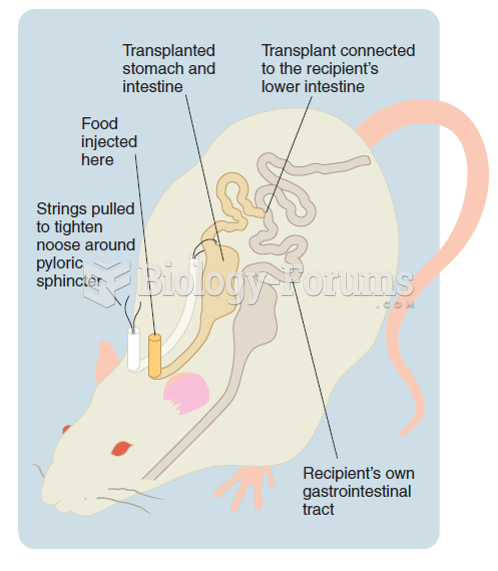|
|
|
Russia has the highest death rate from cardiovascular disease followed by the Ukraine, Romania, Hungary, and Poland.
Anti-aging claims should not ever be believed. There is no supplement, medication, or any other substance that has been proven to slow or stop the aging process.
A cataract is a clouding of the eyes' natural lens. As we age, some clouding of the lens may occur. The first sign of a cataract is usually blurry vision. Although glasses and other visual aids may at first help a person with cataracts, surgery may become inevitable. Cataract surgery is very successful in restoring vision, and it is the most frequently performed surgery in the United States.
Every 10 seconds, a person in the United States goes to the emergency room complaining of head pain. About 1.2 million visits are for acute migraine attacks.
HIV testing reach is still limited. An estimated 40% of people with HIV (more than 14 million) remain undiagnosed and do not know their infection status.
 Examples of covalent modifications that occur to the amino terminal tails of histone proteins. The a
Examples of covalent modifications that occur to the amino terminal tails of histone proteins. The a
 Peptic ulcer. A peptic ulcer may occur in the stomach (gastric ulcer), as shown here, or in the duod
Peptic ulcer. A peptic ulcer may occur in the stomach (gastric ulcer), as shown here, or in the duod





